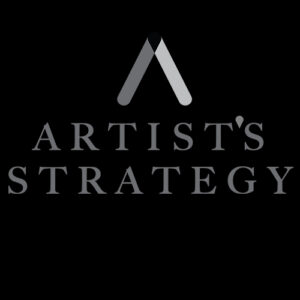
Gig work has been the foundation of an artist’s side hustle for as long as I can remember. Most of us have been waiters, hostesses, babysitters, drivers, bartenders and whatever else seemed to keep us afloat. Creatives are drawn to gig work because it allegedly allows them to put the bulk of their attention on their art. Gig work supposedly provides the flexibility we require in order to really do what we love. Today I’m here to challenge these notions and provide some insight into the dangers of gig work.
We believe in building a holistic approach to all the facets of your business (including what brings home the bacon) in order to keep your focus on your primary goals.
On Shark Tank when they discover that some of the entrepreneurs (which all artists are) are currently holding down second jobs on top of the one they’re trying to start, they all balk and demand they give all their attention to what they’re trying to accomplish. That’s because the sharks know that they need to be “all in” in order to make it happen.
You may think that gig work allows you to be “all in” for your artistic career, but it actually isn’t. It’s a temporary fix, often one that comes with a lot of insecurity and stress. You are avoiding asking the question of how am I going to do this for the rest of my life?
Our circumstance is unique in so much as, for most, our jobs continually come to an end. Because we are so rarely afforded the opportunity to rely on our art, and only our art full time, we must build a secondary income stream that affords us true flexibility of schedule, the ability to set an expected plan for what money is coming in and keeps us motivated and organized.
Building that secondary income stream is a course unto itself so, for now, consider the gig work of the past, present and /or future. Given the thoughts above, does it continue to serve you? If not, let us know. We have some more insights into what may.
Black Lives Matter: We Must All Do Better


Artist's Strategy offers artists the opportunity to strategize and create tactical next steps towards a successful, fulfilling career. Based on tested business principles, Artist's Strategy helps you design a tangible path towards a sustainable future. Incorporating and using the basic tenets of a healthy business, we will help you set a one, three or five-year-plan that will work for you and keep you on track to seeing real results. With Artist's Strategy, you will work alongside founder Joshua Morgan to identify the strengths and opportunities of your business and learn more about how to stabilize and grow. How long and how frequently you work with Artist's Strategy depends on your individual needs and resources. Contact us to discuss a plan that could work for you.
Read Full Profile© 2021 TheatreArtLife. All rights reserved.

Thank you so much for reading, but you have now reached your free article limit for this month.
Our contributors are currently writing more articles for you to enjoy.
To keep reading, all you have to do is become a subscriber and then you can read unlimited articles anytime.
Your investment will help us continue to ignite connections across the globe in live entertainment and build this community for industry professionals.